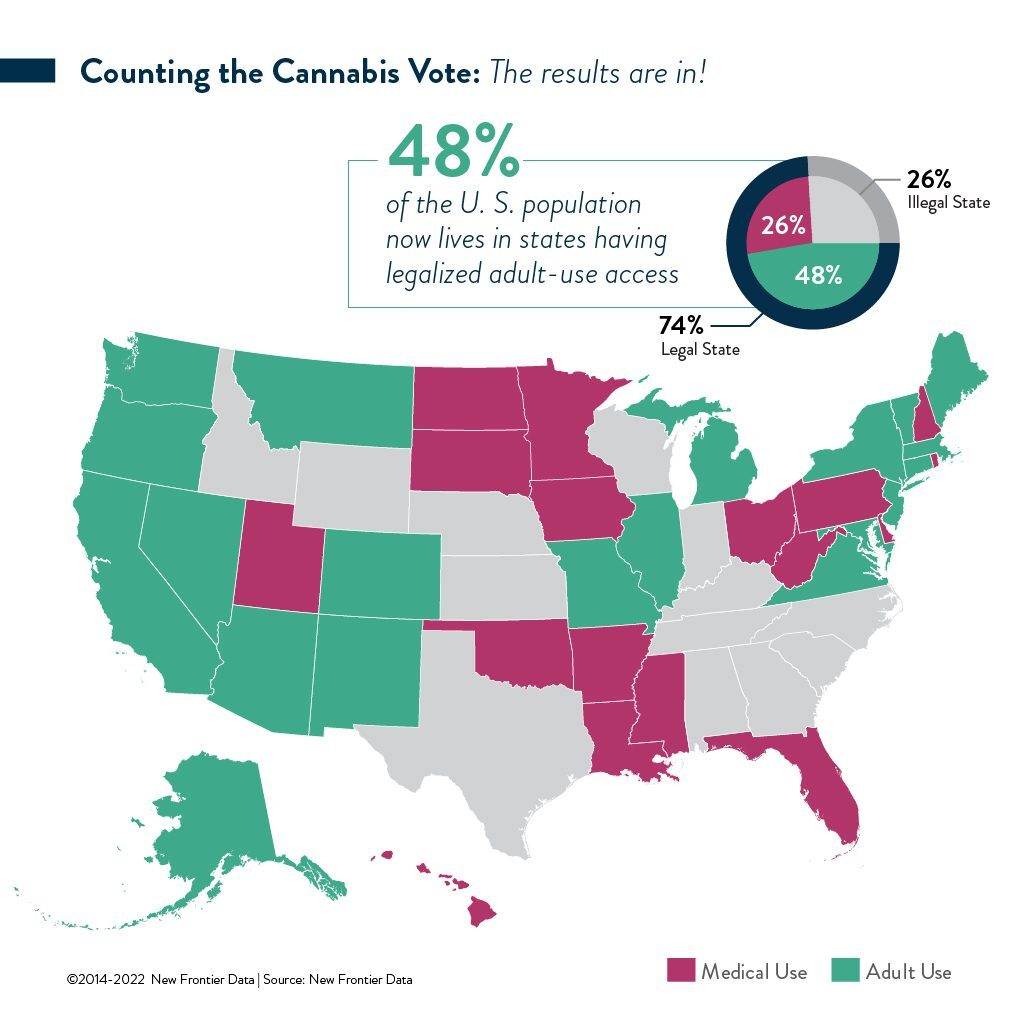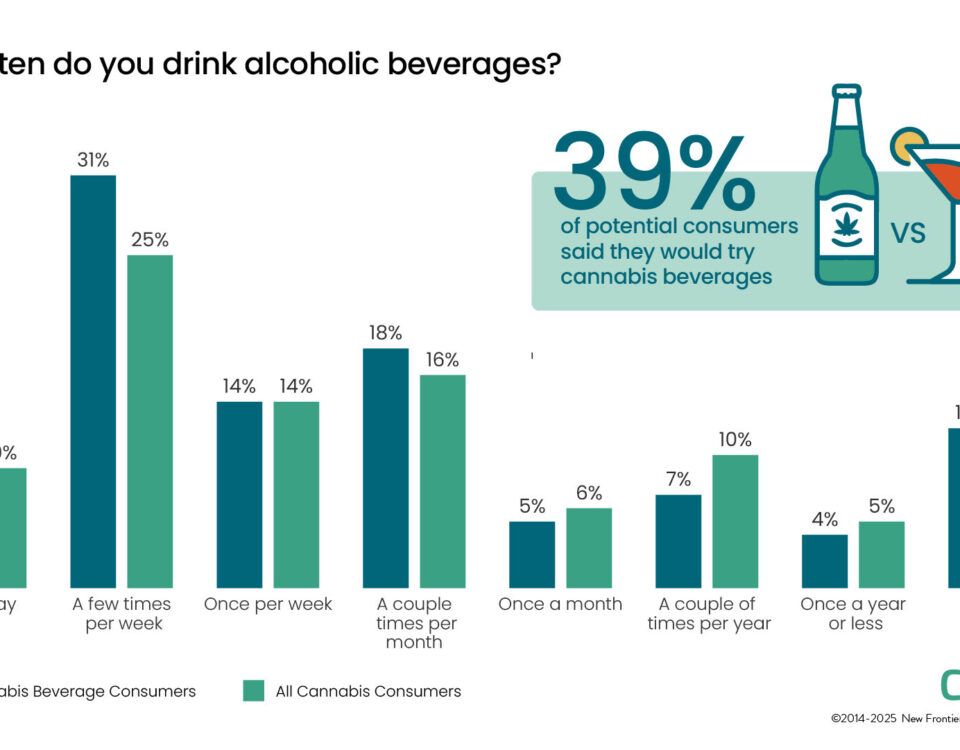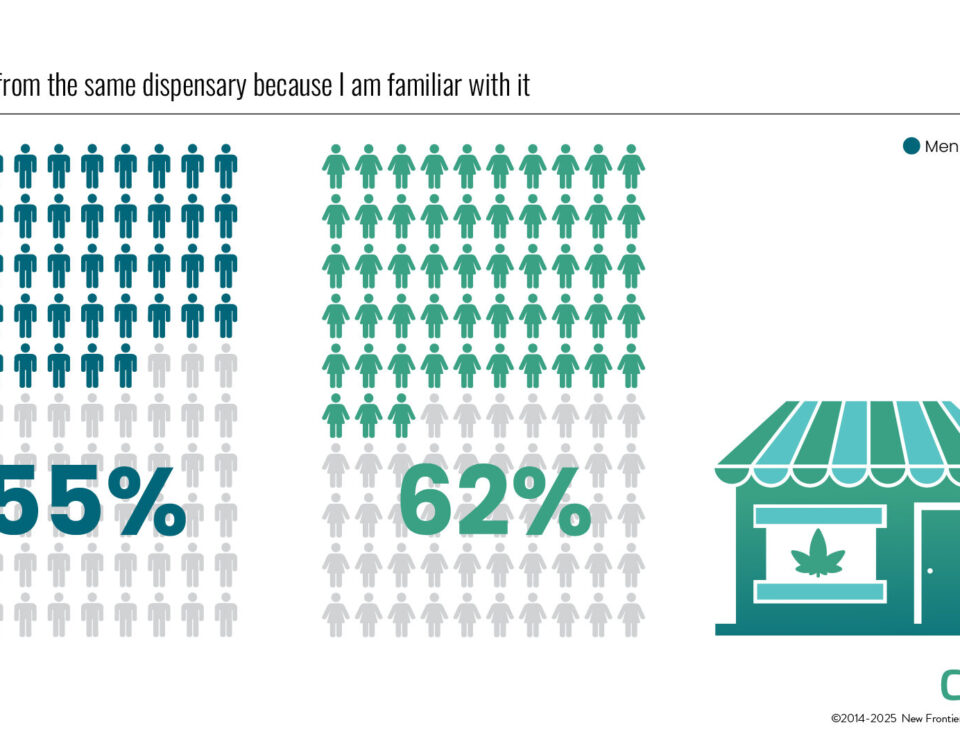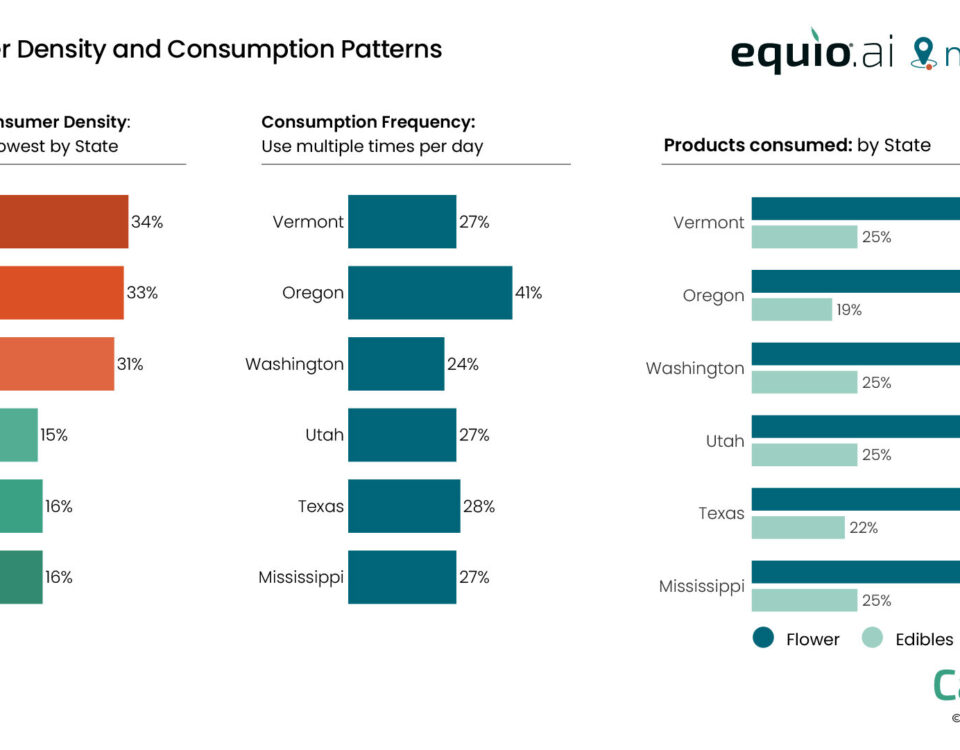Elections Expand Adult-Use Cannabis Markets to Nearly Half of U.S.
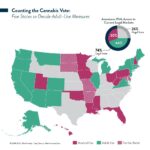
Midterm Elections See Five States Voting on Adult-Use Cannabis
November 1, 2022
For Dispensaries: Know Your Customers to Grow Your Customers
November 9, 2022By J.J. McCoy, Senior Managing Editor, New Frontier Data
Election Day 2022 found the “M”s standing for marijuana, the Dakotas refusing to get dank, and that Arkansas still can’t see its way to passing an adult-use bill.
Passage of Maryland’s Question 4 and Missouri’s Amendment 3 mean that 48% of Americans now live in states having legalized recreational markets. Overall, 74% of the country has legal access to either adult-use or medical cannabis, while 26% of the nation remains in illicit markets. A matching percentage of Americans live in medical-only states.
“The success of legalization initiatives in Maryland and Missouri versus the failures in Arkansas, North Dakota, and South Dakota shows that having an established and visible medical cannabis program is a crucial springboard towards adult use,” explains Amanda Reiman, New Frontier Data’s chief knowledge officer (CKO). “The experience of seeing cannabis dispensaries and consumers as contributing members of a community is an important step towards normalization. And the states that passed adult-use reforms last night had that advantage.”
As projected by New Frontier Data, before last night’s outcomes, annual total U.S. legal sales was projected to grow at a CAGR of 11%, reaching past $57 billion by 2030. That would mean that currently operational states could add an additional $25 billion in revenues over the next seven years, highlighting the continued growth opportunities even among well-established markets.
Legalization Grows Further
Given the increasing legalization of cannabis and its broader social/political acceptance, we expect more U.S. states and countries internationally to legalize full adult-use markets simultaneously with medical programs. Reformed markets have demonstrated that time lapses between adopted medical programs and subsequent recreational legalization in the same markets have shortened. According to an April poll by the Pew Research Center, 91% percent of U.S. adults support favor some form of legalized cannabis.
Maryland will now amend its state constitution to permit adults aged 21 or older to use and possess cannabis beginning in July 2023. It is also automatically implementing House Bill 837 (HB 837) to specify legal quantities for possession, along with fines for violations exceeding those restrictions. A transitional period will temporarily expand decriminalization from January 1 to June 30, 2023, automatically expunging criminal convictions for actions rendered legal. The state legislature will also identify and implement taxes and regulations for its new market. Officials have not yet set any tax rate or structure for its cannabis market, nor have any bills identified a licensing or regulatory framework for vendors.
Missouri’s own amendment to its state constitution specifies matters of possession, consumption, use, manufacturing, sales, delivery, taxation, and justice reforms regarding personal use of cannabis by adults ages 21 and older. Based on a 6% retail tax, state officials’ estimates project initial revenues beyond $21 million to be shared between the state ($7.9 million) and local governments ($13.8 million).
Among the naysayers, Arkansas’ measure (with 97% of votes reported) lost by approximately 56% to 44%. With 99% of precincts reported in both North Dakota and South Dakota, voters in those states rejected their marijuana measures by 54.9% and 53%, respectively.
What’s Up Next?
In Oklahoma, cannabis advocates collected enough signatures to present the issue by referendum, but not in time to include it on next week’s ballot. Instead, they will vote on the measure in March 2023.
In Texas yesterday, five cities voted to decriminalize low-level marijuana possession. Residents of Denton, Elgin, Harker Heights, Killeen, and San Marcos were able to do so since the home-rule jurisdictions in Texas are permitted to establish ordinances that are not explicitly forbidden by state or federal law. The advocacy group Ground Game Texas reportedly intends to introduce similar reforms for referendum to San Antonio voters in May 2023, aiming to present them to the state’s other largest cities (i.e., Dallas, Fort Worth and Houston) for the 2024 elections in the nation’s second-most populous state.
As for the lame duck Congress, Saphira Galoob, executive director of the National Cannabis Roundtable, has been quoted as expecting banking reform to happen before year’s end.
For updates, further developments, and specific insights for each state market, check out New Frontier Data’s Equio® as the leading business intelligence platform delivering statistics, data, news, and analysis on the rapidly evolving global cannabis industry.

